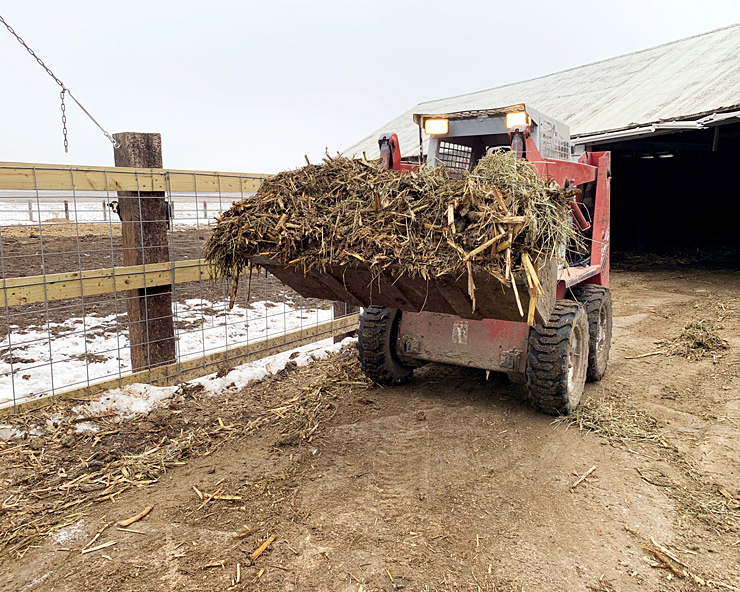It’s not possible to produce wholesome farm-raised meat, eggs, or milk without also having manure. When animals are housed indoors, using the correct bedding or litter can improve animal comfort, help protect your herd from disease, and make cleaning up easier.
There are many options when it comes to bedding. Price, location, and equipment will affect the type that you pick. Below are some practices that will help improve bedding sanitation on your farm and keep your animals healthy.
Equipment
Don’t share the equipment you use to handle manure with other operations. Any germs from their animals could be spread to yours and make them sick. Using different equipment for clean and dirty bedding or litter is ideal. This prevents disease-causing germs in manure from spreading to clean bedding. If you can’t do this, make sure to clean your equipment when you switch from dirty to clean bedding.
Animal Housing Areas
Plan to remove dirty bedding and litter often. Regular removal will keep animals clean and help stop the spread of disease. Bugs often lay eggs in manure. By cleaning animal pens every week, you can prevent the eggs from hatching into problem-causing parasites.
Clean bedding is essential with youngstock. Their bodies cannot fight off disease like adult animals, so special care should be taken to provide them with a clean environment. Remove dirty bedding between dams giving birth. A healthy adult animal may be carrying a disease that could be life-threatening to a newborn, such as Salmonella or E. coli. Continue to keep pens clean and dry as they grow.
Storage & Removal
Know the rules of manure disposal in your area. Consult with your local extension office when you make a manure management plan. Make sure your manure storage location is away from water to prevent runoff. It’s best to pile soiled bedding or litter in a spot that animals cannot get to. Both wild and domestic animals can spread disease if they come into contact with dirty bedding. Preventing all animals from reaching dirty bedding is no easy task. Spreading the manure on fields or composting can destroy disease-causing germs.
Bedding & Litter
The bedding or litter you choose should give your animals a clean, comfortable, dry area. The material you decide to use should be absorbable but not dusty. Large amounts of dust can lead to respiratory problems in both people and animals.
Be sure to get bedding and litter from a reputable source to prevent new diseases from entering your farm. If you choose to use straw, make sure animals outside your farm did not graze it before harvest.
Rodents often carry diseases that can infect your animals. Moisture or humidity can cause bedding to mold or rot. Store your bedding in a clean, dry place where you can prevent rodents from living in it.
For More Information
- Manure, Litter, & Bedding Management Tip Sheet, The Center for Food Security and Public Health, Iowa State University
- Options for Livestock and Equine, University of Massachusetts Extension
- Composting Manure, Small Scale Solutions for your Farm, National Resources Conservation Service
- Manure Handling, Healthy Farms Healthy Agriculture
- Compost Tip Sheet, ATTRA Sustainable Agriculture, A program of the National Center for Appropriate Technology

